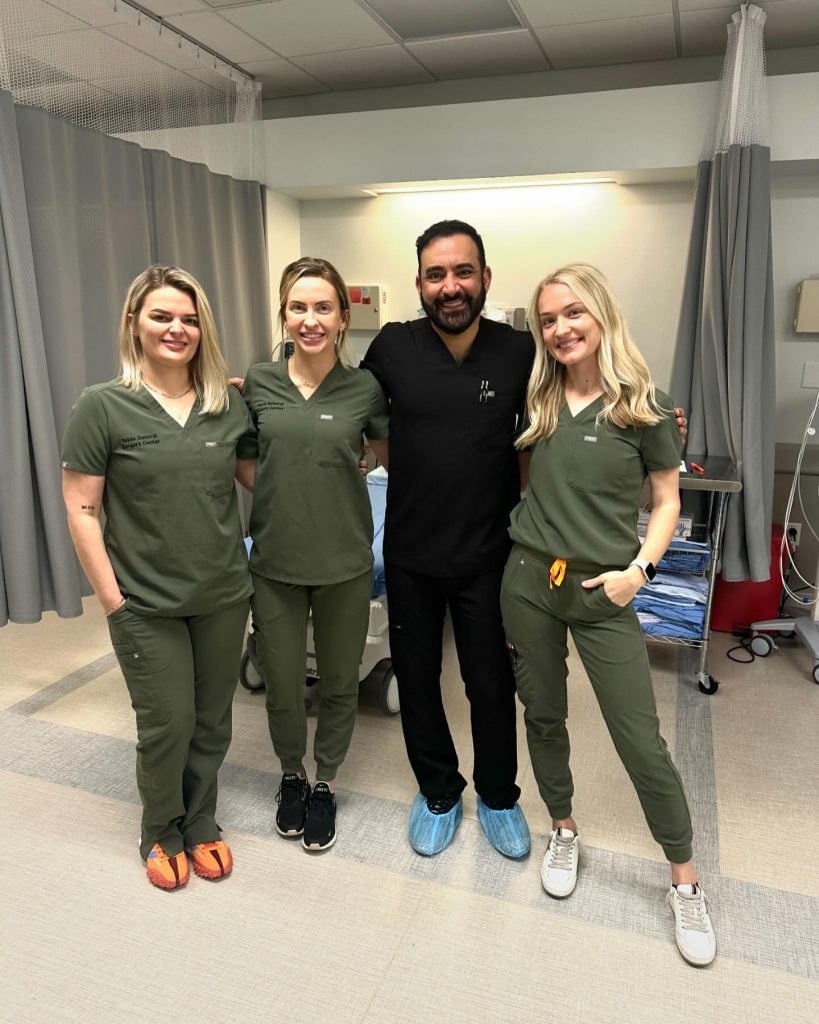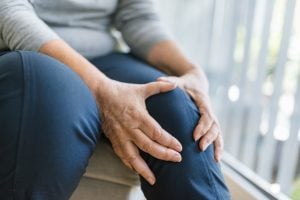Many people experience pain in their lower back and wonder—could it be my kidneys? While both conditions can cause discomfort in the same area, the underlying causes, symptoms, and treatment approaches are very different. Understanding the difference between lower back pain and kidney pain can help you get the right diagnosis and care faster.
Where the Pain Comes From
Lower back pain typically stems from muscles, joints, or the spine. Common causes include strained muscles, poor posture, arthritis, or herniated discs. This pain often worsens with movement, lifting, or sitting for long periods.
Kidney pain, on the other hand, originates deeper in the body. It’s usually felt higher up, near the rib cage, and is caused by conditions like kidney stones, infections, or inflammation.
Dr. Ghalambor, internist and anesthesiologist at NorTex Spine & Joint Institute, explains:
“Back pain tends to be mechanical—linked to movement or posture. Kidney pain often feels deeper and more constant, sometimes radiating toward the abdomen or groin. Paying attention to where and when pain occurs can reveal a lot.”
Key Differences Between Back Pain and Kidney Pain
Here’s how to identify what type of pain you may be feeling:
- Location:
- Back pain: Lower back, buttocks, or along the spine.
- Kidney pain: Higher in the back, under the ribs, on one or both sides.
- Back pain: Lower back, buttocks, or along the spine.
- Type of Pain:
- Back pain: Dull ache, sharp stab, or muscle tightness.
- Kidney pain: Deep, steady ache or sharp waves of pain that may come and go (especially with kidney stones).
- Back pain: Dull ache, sharp stab, or muscle tightness.
- Triggers:
- Back pain: Worsens with movement, bending, or lifting.
- Kidney pain: Often constant and unaffected by movement.
- Back pain: Worsens with movement, bending, or lifting.
- Other Symptoms:
- Back pain: May include stiffness or tingling if nerves are involved.
- Kidney pain: Can include fever, nausea, urinary changes, or cloudy and foul-smelling urine.
- Back pain: May include stiffness or tingling if nerves are involved.
When to Seek Medical Help
Some symptoms suggest a kidney problem that needs quick attention:
- Pain that is one-sided and severe
- Blood in the urine
- Fever, chills, or nausea
- Pain radiating to the abdomen or groin
If these occur, you may need kidney pain evaluation or kidney health testing at a local clinic.
If your pain worsens with motion, is linked to posture, or radiates down your leg, it’s more likely a spinal or muscular issue. In that case, visiting a lower back pain clinic or scheduling a back pain medical consultation is the best next step.
Common Conditions Linked to Kidney Pain
- Kidney stones: Sharp, severe pain that moves from the back to the lower abdomen.
- Kidney infection (Pyelonephritis): Deep ache with fever, fatigue, and urinary issues.
- Polycystic kidney disease: Ongoing dull pain, often with high blood pressure or enlarged kidneys.
If you suspect a kidney issue, seek a pain management appointment or kidney stone treatment near you for a proper diagnosis.
Common Causes of Lower Back Pain
- Muscle strain or ligament sprain
- Herniated or bulging discs
- Degenerative spine conditions
- Poor posture or prolonged sitting
- Injury or overuse
Chronic or recurring pain may need lower back pain diagnosis by a back and kidney pain specialist who can use imaging or nerve studies to identify the source.
How a Specialist Can Help
At NorTex Spine & Joint Institute, Dr. Ghalambor and his team offer advanced diagnostics to determine whether your pain originates from your spine, muscles, or kidneys.
“Identifying the true cause is key to effective relief,” says Dr. Ghalambor. “We combine imaging, patient history, and interventional techniques to personalize care and improve outcomes.”
Treatment options can include:
- Pain management injections for inflammation or nerve pain
- Physical therapy to strengthen and stabilize the back
- Medication management for infection or kidney inflammation
- Minimally invasive procedures for chronic spinal pain
Practical Self-Care Tips
- Stay hydrated to support kidney health.
- Maintain good posture while sitting or standing.
- Avoid lifting heavy objects improperly.
- Apply heat for muscle tension or cold packs for inflammation.
- Seek professional advice before taking over-the-counter pain relievers, as some can affect kidney function.
While NorTex Spine & Joint provides specialized care, many reputable clinics offer similar treatments. Always seek multiple opinions before deciding on treatment.
If you’re unsure whether your discomfort is from your lower back or kidneys, don’t wait. Schedule a pain management appointment or back and kidney pain evaluation with a trusted specialist in Fort Worth, Allen, Coppell, or Garland, TX today to get the answers—and relief—you need.
Additional Resources:
https://www.mayoclinichealthsystem.org/hometown-health/speaking-of-health/7-common-low-back-pain-faq
https://www.webmd.com/back-pain/what-helps-with-lower-back-pain







